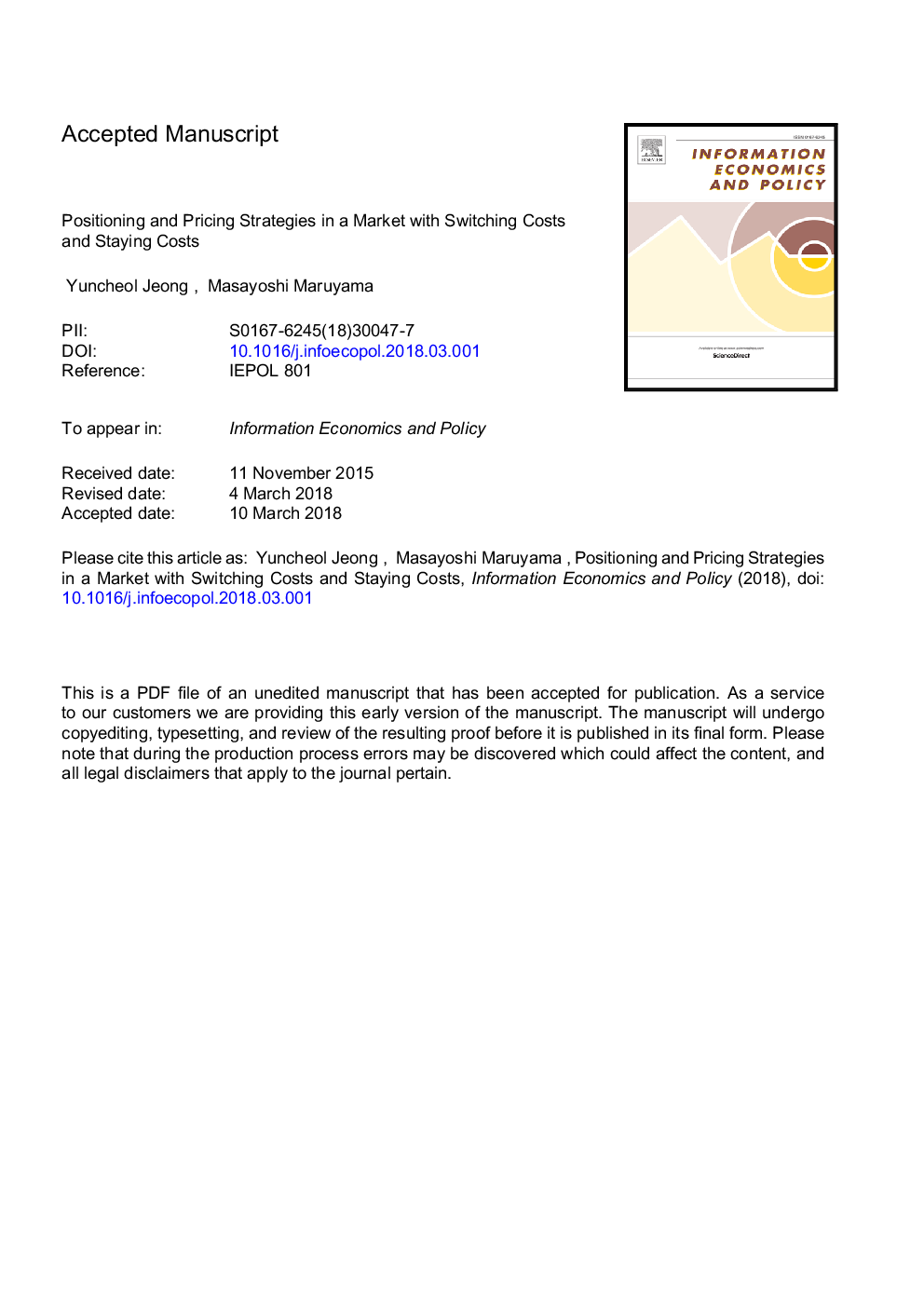| Article ID | Journal | Published Year | Pages | File Type |
|---|---|---|---|---|
| 8965239 | Information Economics and Policy | 2018 | 32 Pages |
Abstract
We analyze positioning and pricing strategies in a two-period duopoly where consumers have heterogeneous switching costs and staying costs. In the second period, we show that firms offer discounts to new customers in a market where there are more inertial consumers with large switching costs, while firms offer discounts to past customers in a market where there are more variety-seeking consumers with large staying costs. If in the second period of our model there exist both inertial consumers and variety-seeking consumers, horizontal product differentiation is minimized and both firms locate at the center of the Hotelling line market. Furthermore, when consumers are relatively sophisticated (forward-looking), behavior-based price discrimination (BBPD) hurts firms' profits as shown in the previous literature. However, when consumers are sufficiently naive (or myopic) and do not care much about the second period when making first-period decisions, we find that BBPD can be profitable.
Keywords
Related Topics
Social Sciences and Humanities
Business, Management and Accounting
Management of Technology and Innovation
Authors
Yuncheol Jeong, Masayoshi Maruyama,
